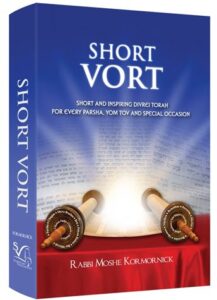The Medrash points out that what the Torah forbids by animals it permits by wild beasts; what it forbids by wild beasts it permits by birds, and what it forbids by birds it permits by fish.
The Torah forbids cheilev (non-kosher fat) by animals but permits it by wild beasts; it forbids Gid ha’Nosheh (the sciatic nerve) by wi1d beasts but permits it by a bird and it forbids the blood of birds but permits it by fish.
The reason for this, the Medrash concludes, is in order to reward Yisroel for performing the mitzvos. What the Medrash presumably means is, that all of the above prohibitions are not based on logic (certainly not human logic), but were presented to us in order to reward us for carrying out the Divine will, conforming to the opinion that there is no logical reason for the mitzvos. That being the case, G-d was satisfied that He would achieve this goal by issuing one prohibition on the one species, and another on the other species. And that is precisely what the Mishnah says at the end of Makos: ‘Hashem wanted to merit Yisroel, so He gave them numerous mitzvos”. Most of the mitzvos, the Tana is saying, are not based on logic, but on the Divine will, and their sole (or major) objective, is to reward those who fulfill them.

SHORT VORT, Rabbi Moshe Kormornick. Published by Adir Press. $9.99 in stores worldwide and online here
Whether you are looking for something meaningful on the Parsha, an uplifting thought for Yom Tov, or have been asked to speak at a Simcha – “Short Vort” is the book for you! With over 140 incredible short vorts packed with stories and valuable life messages, you will never be lost for something inspiring to say.
Rabbi Moshe Kormornick is a popular writer whose words are enjoyed by thousands of readers every week.







